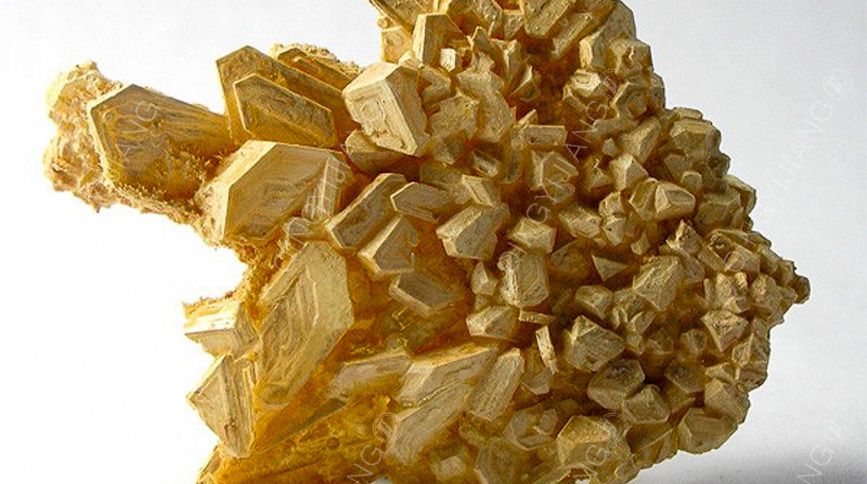Introduction of Sodium Sulphate
QYJSSA/May 04,2022
Sodium sulphate or hydrated sodium sulfate is a water-soluble, white, crystalline mineral powder. It is an important raw material for the chemical industry and light industry and is able to be widely used in detergents, textiles, glass, kraft pulp, chemical raw materials and pharmaceuticals.

figure1glauberite crystal group
Sodium sulphate is classified in terms of its purity level, color, density, pH value, neutrality and other mineral content, and it can be processed into different forms to meet the needs of end users in various industries.
1.Glauberite Mine Distribution
Sodium sulphate in nature comes from natural glauberite mine, which forms from specific geological formation for millions of years. Glauberite Mine is one of the most abundant geological formation in China. It occurs in the form of solid salt-like sediments in dry areas and is very easy to dissolve. When dissolved in water, it will be converted into hydrated sodium sulfate(Na2SO4·10H2O). Hydrated sodium sulfate is an aqueous mixture, which can be dehydrated and processed into sodium sulfate, that is, a solid form of Na2SO4 which contains more than 98% of sodium sulfate.
The global glauberite reserves are estimated to be about 35.3 billion tons, and China, the United States, Canada, Mexico, Spain and Turkey have the most abundant glauberite reserves. Among them, China has the most abundant glauberite reserves, with reserves of about 10.5 billion tons. At the same time, China is also the world's largest sodium sulfate producer.
2.Mass Production and Customized Production
The traditional markets for sodium sulfate such as laundry detergent, textiles, glass and pulp and paper industry are all mature ones, and customers from these areas are used to preferring the most cost-effective and reliable sodium sulfate suppliers.
Sodium sulfate product can be customized according to customer's packaging and specifications to meet the needs of different markets. For example, the detergent industry needs not only ordinary white thenardite, but also more efficient large-particle thenardite. In recent years, colored thenardite particles have become more and more popular among some customers in the detergent industry. Other custom services include adjusting the pH or adding minerals such as calcium for special purposes.
